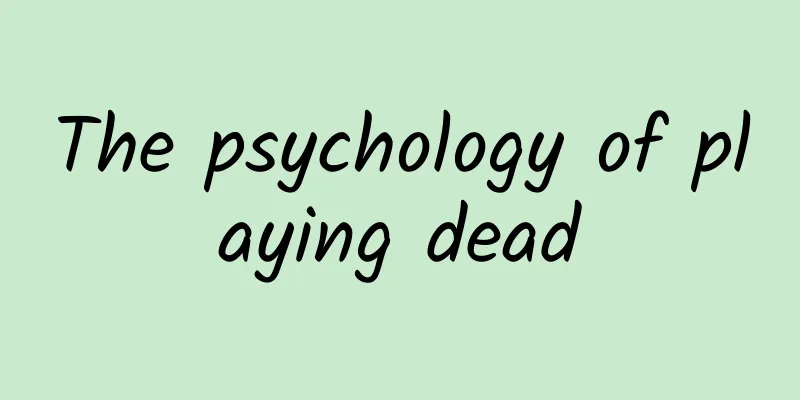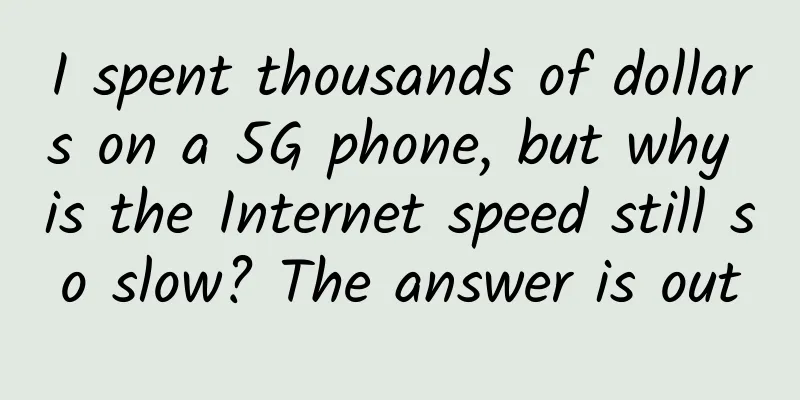The psychology of playing dead

|
© Angelica Alzona Leviathan Press: For easier understanding of the "Munchausen syndrome by proxy" that appears in the article, interested students can go and watch a movie called "Run" (2020). I will not spoil the content of the movie here. "Munchausen syndrome by proxy" refers to a mental illness in which a caregiver deliberately exaggerates or fabricates the physical, psychological, behavioral or mental problems of the person being cared for, or even contributes to such problems. This may not sound like a big deal, but in a real case, a British pediatric nurse named Beverley Allitt injected potassium chloride, which causes cardiac arrest, and insulin, which causes hypoglycemia, into sick children during work, killing a total of four children. Allitt's motive for murder has never been finally explained, but there is a view that she is a typical "Munchausen syndrome by proxy" person - intending to gain attention from the outside world by faking the illness of others. To break away from the royal family, to become a pirate, to seek a quiet life after the war... There are countless such cases in history. Although most people pretend to be dead to escape bankruptcy and marriage, for some people, pretending to be dead is the only way to make themselves feel alive. According to psychologists and researchers who fake their own deaths, many people who fake their own deaths feel marginalized and hope that their existence can be more meaningful. Since the invention of the Internet, the methods of faking death have evolved, but the motivations remain complex. When we dig deeper into the truth behind it, we find that it reveals a lot about our understanding of life and death, reinvention, despair, and even self-esteem. Dilemma between life and death "Most people fake their death because of marital or financial problems, and they feel they are pushed against a huge wall and can't move," explains author Elizabeth Greenwood. While writing her book Playing Dead: A Journey Through The World Of Death Fraud, she read a lot of research and found that many cases were caused by some kind of dilemma. "They really felt that faking their own death would save their own lives." "For them, the situation was so urgent that they had to fake their own death. Whether that was objectively true or not is another matter, but subjectively they really felt that faking their own death could save their own lives," Greenwood said. Many of the most famous cases of faked deaths were caused by urgent and insurmountable financial difficulties. Whether it was to cheat on insurance policies or to escape debt, the fraudsters faked everything. Faking a boating disappearance? OK. Suspected murder by Tamil rebels? OK. Ken Kesey. © Sky News Some people did run away, like the writer and explorer Ken Kesey, who was facing arrest for marijuana possession and parked his truck on the beach, left a note, and then turned around and sneaked into Mexico. At that time, the headlines of "Psychedelic Master Suicide!" appeared in major media, but unfortunately the authorities did not buy it. Of course, some people fake their death to pull dirty tricks, like Samuel Israel III, a former hedge fund manager who orchestrated a Ponzi scheme that bilked investors of hundreds of millions of dollars. On the day he was due to report to prison, he parked his car on a bridge in New York State and left a dusty note on it that read, "Suicide Is Painless." He was arrested in Massachusetts weeks after being wanted. Samuel Israel III appears in court after being arrested. © AP Greenwood believes these people feel they can just discard their past selves and move on as if the past never happened. “They have this strong sense that parts of their lives can be surgically removed, whether it’s legal trouble or bad decisions, and they can just move on with their lives or temporarily fix their problems,” she said. “But the unfortunate thing is that we are who we are.” Psychological disorders are related, but they don’t explain everything Dividing one's life into two parts, or just plain playing dead, is still hard for many of us to understand. In many cases, people who are cornered simply won't explain why they do it, whether it's about cutting off the past or restarting the future. For example, when Nashville attorney William Grothe fled the scene, abandoning his car and personal belongings, and then calling the police to claim he had murdered Grothe, no official public record is known of what had happened before this. The authorities quickly uncovered his ruse, and he was sentenced to five years of probation, 32 hours of community service a month, and $13,000 in government search costs. Grote reportedly described his actions at the trial as follows: "I went to Shelby Park, parked my car, and performed a ritual in my mind that felt like I was dead to the world." It is true that extreme psychological stress can be a trigger for faking one's own death, but regardless of the reported presence of such a catalyst, most cases are not considered mentally ill. However, according to Dr. Marc Feldman, clinical professor of psychiatry and associate professor of psychology at the University of Alabama, certain psychological disorders are bound to lead to such behavior. “Many people attribute faked deaths to tangible, real-world causes — running away from debt, marital troubles, etc., and then sneaking back in as a different identity when things are calmer,” Feldman, who specializes in factitious disorder (formerly known as Munchausen syndrome) and other behaviors that involve faking illness, said in a telephone interview. “This behavior is very similar to the symptoms of factitious disorder.” People with factitious disorder typically fake or exaggerate their illness in order to gain attention or control over others. Malingering, on the other hand, is characterized by "scheming" to gain physical, rather than emotional, advantages and does not fall under the category of mental illness. However, because these motivations often overlap, it is often difficult for laypeople to distinguish between the two. He also stressed that there are no symptoms or diseases beyond the known cases of factitious disorder. "It sounds a bit exaggerated, but people do it, to get emotional satisfaction or to relieve boredom." “Personality disorders are chronic, unconventional ways of getting your needs met, with more hurtful behaviors than words.” In fact, most people have personality disorders, such as borderline personality disorder or narcissistic personality disorder. “Factitious disorder is hard to explain unless you know or assume the patient has a mental problem.” It’s important to distinguish this from faking one’s own death for “some kind of satisfaction,” Feldman said. "Lord" Timothy Dexter, Full-length Portrait of an Eccentric with his Dog, by James Akin, 1805 engraving, published 1806 For example, Timothy Dexter, an 18th-century American businessman and famous "eccentric" who called himself "Lord," is unlikely to have suffered from factitious disorder (but it could be something else). Dexter spent his life building a facade, filling his estate with honorary statues (including his own) in an effort to gain admiration and respect from the upper classes. There is also an anecdote that he planned his own wake, then came out of hiding to lecture his wife because she was not mourning enough. Artificial barriers also don’t seem to apply to forum user M Otis Beard, who staged a death in a post online, only to return amid skepticism from other users. As Wired reports, “After blithely declaring that ‘rumors of my death have been greatly exaggerated,’ Beard claimed that his ‘little escape’ was a way to test the community’s sense of group consciousness, providing a different kind of catharsis when he was revealed.” There is a practice in fan culture called "faking suicide," and Feldman said the emotions and social stakes involved make it a powerful and, in some quarters, increasingly used method of deception and control. "Fake disorders are not just about getting attention, they can also be about manipulating others," he said. "Nothing captures people's hearts more than suicide." Feldman recalled a case in Michigan where a man was hospitalized for mental health issues and drug addiction, “he seemed to be doing well, the staff arranged for an appropriate discharge, and an aftercare plan was in place.” The next day, the man’s alleged father called to say he had committed suicide the night after being released from the hospital. "Unlike other people who fake their death, people with factitious disorder often want to be acknowledged in some form." “It turned out that the caller was the man who had sadistic tendencies and knew that this would cause deep distress to the staff,” Feldman explained. The scam was eventually uncovered, not by the patient’s admission, but by checking Michigan’s database of deceased persons: He wasn’t in it. “You have to be extremely manipulative to fake suicide,” Feldman said. “That’s so frustrating: Unlike people who fake their death, people with factitious disorder often want to be acknowledged in some way.” "Internet Munchausen Syndrome" and Modern Fake Death After studying hundreds of cases over the years, Feldman believes that pseudo-death is not a common occurrence, but it is not easy to find out exactly when it happens. "Common sense tells me that suicide caused by factitious disorder is rare, but the psychiatric literature does not provide references to frequency." The main reason for this is that the terms "pseudocide" and "pseucide" have been used interchangeably over the past few decades. "Because of this ever-changing definition, it is currently impossible to keep statistics, and I doubt even the FBI keeps track." However, in recent years, the development of technology has brought to light more and more cases of faked death, and Feldman believes that the number of patients with "Internet Munchausen syndrome" is steadily increasing. In short, the traditional method of gaining sympathy is to fake illness in oneself or others (such as Munchausen syndrome by proxy), but now it can be done quickly online; the same is true for faked death. "The convenience of the Internet and its ready accessibility have contributed to the spread of 'Internet Munchausen syndrome,'" Fedelman told Wired in 2009. "In fact, Internet Munchausen syndrome is more common than real-life Munchausen syndrome... It's very easy to use the Internet to research medical conditions, post medical myths, and connect with others without having to go through the trouble of pretending to be ill." Online, these behaviors manifest themselves as users faking illness or inventing personas (aka sock puppets), faking the death of others, or their own. Feldman said he has also come across cases where people who felt they were being neglected or abused faked their suicide online in response. People participated in online interest groups or support groups for mental/emotional disorders, and then "someone posted that they died because the group didn't help them." Although it has become harder to fake things online in the past decade, people haven't stopped. And, regardless of whether people have factitious disorder or not, online medical hoaxes are associated with recurring psychological problems. "Many people are lonely, and the Internet provides a ready, ongoing source of unconditional support." There is also “a web of visible and invisible factors” behind why people commit suicide, digitally or in real life, Feldman said. “People may fake suicide to punish someone else, or there may be voyeuristic motives, to see how others will react to their death. We all have fantasies about what happens when we die, who will come to our funeral.” Life, Death and Self-Respect Regardless of whether our occupations and lifestyles involve high risk, most of us spend a lot of time thinking about death: our own or a family member’s death, and how it relates to the life we’re living. Researcher Sheldon Solomon has spent decades studying how we feel and react to death, which may help explain why faking your own death is an appealing idea. “The purpose of faked death is fraud,” Solomon said. “But you can imagine that from an existential psychodynamic point of view, it is tempting for some people to metaphorically write off the past and clear their history, but from a personal perspective, it doesn’t make a lot of sense and it’s hard to have a sense of self-worth.” Most of the time, we have fantasies of being missed and cherished after death, which is consistent with what Solomon and his colleagues found in their research about basic attitudes toward life. "Based on our research, we believe that because humans are conscious, they are aware of their own mortality to varying degrees, and therefore explore the depth of their value in the length of their lives." He also said that being aware of one's own impending demise is a common trait and is fundamental to being human. "On the one hand, it's a wonderful thing to have the wisdom to realize your own existence; it's very encouraging, especially for our last moments. But then again, if you are wise enough to realize your own existence, you will also be able to realize that, like all living things, your life has a finite length and can end at any moment, and you have no right to participate in the plans of death or to stop its progress." “In the grand scheme of things, you’re an insignificant speck of carbon-based dust, born at a time and place not of your choosing, existing for a short time before expiring in an unfathomable universe. That’s a very depressing idea, and it has the potential to weaken our resolve.” He references social anthropologist Ernest Becker’s ideas about how we are drawn to belief systems that “provide the social rules that allow us to see ourselves as valuable beings in a world of meaning.” “If we can do that,” Solomon continued, “that’s what Becker calls self-esteem.” Self-esteem, which is not narcissism, helps buffer us against anxiety about death, Solomon points out. In numerous studies, Solomon and his team have found that mentioning death brings out our defensive side, making us more aggressive toward nature and nonhuman animals and exacerbating existing mental disorders or phobias. Our discomfort with death also seems to make us more likely to “waste non-renewable natural resources” by eating more and buying more, Solomon said, perhaps in line with Kierkegaard’s idea that we are “praised by trivial things, and social media is one of them.” Solomon says the word "self-esteem" is something most of us grow up with, but we often forget what it means. "Some people equate it with self-indulgence, but we don't agree. As Virginia Woolf wrote in A Room of One's Own, 'Without confidence we are like babes in a cradle.'" “It may seem like a psychological insight, but it’s actually common sense,” Solomon continued. “Having the ability and the courage to finally accept yourself as you are is the highest pursuit in terms of mental health.” Because in the end, no matter how much we have, it seems that we are always insecure about our existence, and at this time, we should not rely too much on advice like "fake it until you make it," or other people's definition of success. The history of playing dead is also the history of human beings, and there are too many tragic examples to prove that compromising on values can derail everything. © BBC For example, in 1974, British MP John Stonehouse (pictured above) disappeared, presumed drowned off the coast of Miami after a 20-year "ambitious" political career. He was found alive a year later, and while speculation that he was a spy during his absence turned out to be true (one of the many surprising details of the case), the Guardian explained in 2013 that this was still "probably not the reason he faked his death." Stonehouse, who had fled to Australia with his secretary and was embroiled in financial problems at a charity, addressed the House of Commons in October 1975 about his actions. He described a "psychotic suicide" that had preceded his fake death, and frequently referred to his true self in the third person: "A new parallel personality took over me, alien to me, and which despised the hypocrisy and deception I had shown in my public life over the past few years. It turned out that the complete frustration of his ideals in political life had led to the breakdown and destruction of that person, and was ultimately destroyed by events beyond his control, which finally overwhelmed him..." The huge pressure left him nowhere to escape, and these pressures squeezed the original personality's will to survive. Everything in life and work seemed to be cursed... The original person had become a burden to himself, his family and friends. He could no longer bear this pressure, so he had to leave. We may never get a definitive answer as to why someone would choose to commit spiritual suicide, or how to understand this split. Some people face life and death with fear or anger, focusing only on controlling the end of their lives. However, only by trying to create our own meaning and value can we take our place in the only reality and the only life we know. By Janet Burns Translation/Big Guy Proofreading/K, Rabbit Walking on Water Original article/gizmodo.com/the-psychology-of-faking-your-own-death-1830022958 This article is based on the Creative Commons License (BY-NC) and is published by Da Guy on Leviathan The article only reflects the author's views and does not necessarily represent the position of Leviathan |
<<: Trapped in the elevator for 2 hours, almost fainted due to lack of oxygen...
Recommend
Why does a fever come back a few days after it subsided? Doctors remind you!
Recently, many people have gradually recovered, b...
Electric Technology Car News: The overall stylish Pentium X40 has a unique style but many flaws. Can it gain a foothold in the small SUV market?
It is an indisputable fact that the SUV market is...
Midas Touch "Live Flow Control Master" analyzes and understands traffic control, full of practical information
Midas Touch Live Streaming Controller, a comprehe...
Master these 12 tips for social monetization
Today I would like to talk to you about how to qu...
The Journey to Psyche Exploration Begins! The Target is More Than Just the "Golden Planet"
At 22:19 Beijing time on October 13, the US Falco...
Exaggerated! World famous paintings have been hanging upside down for 75 years? What do scientists say about aesthetics?
Recently, the art world has made a ridiculous &qu...
What is the minimum monthly consumption for 400 calls?
According to the data collected by customer servi...
The 2022 Hunan Province Practicing Veterinary Qualification Examination Fee Standards have been released: How much is the fee per person per subject?
The practicing veterinary qualification examinati...
How did “Her Community” win tens of millions of users in four months?
Anti-counterfeiting startups have now become an e...
How to operate a Douyin corporate account without experience and manpower?
With the rise of short video platforms, more and ...
How to utilize consumers’ five senses to develop an operational strategy that ignites user desires?
We who work in operations communication often say...
In addition to giving away Beats, Apple also launched these products specifically for Chinese users
The Spring Festival is approaching, and Apple has ...
Can’t come up with notes for popular articles on Xiaohongshu? 5000-word review guide
If a blogger, Xiaohongshu operator, or marketer f...
How to prevent user churn starting from the user life cycle?
I've been thinking about some things about us...
Is it considered overdue if the credit card payment is made on the due date? Two points to note
Credit card payment is considered overdue on the ...









